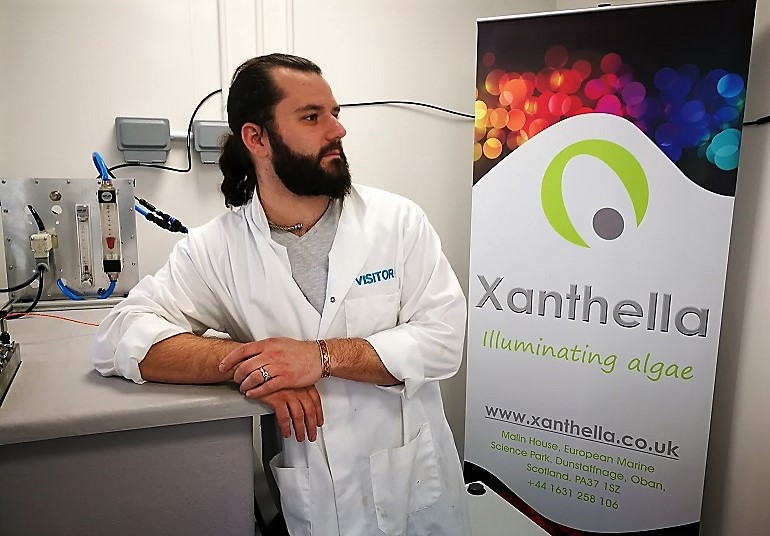
Xanthella is delighted to welcome Dr. Sebastien Jubeau to their team as Research Director.
Sebastien has a master’s degree in plant chemistry and quality of plant products from Agrocampus Ouest (Rennes, France). During his internship at Ifremer Nantes he discovered the world of microalgae, working on the production of exopolysaccharides by different species. Aware of the huge potential that microalgae represent, he decided to complete his master’s degree in biotechnology and bioprocess at Nantes University and studied the production of an exometabolite by a diatom during his internship at laboratory GEPEA (Saint-Nazaire, Nantes). He then spent the next three years working on his PhD thesis on the biorefinery of the red microalga Porphyridium cruentum. He successfully developed a process to valorise the whole biomass enabling production of different high value extracts.
After his thesis, he became project manager at AlgoSource Technologies where he was in charge of all projects concerning downstream processing and microalgae valorisation. During this time he was a project partner, work package leader and project leader in various projects, including FP7 BIOFAT project, the ADEME Algoraff project and the H2020 BBI Magnificent. He has also worked with private companies to develop new microalgal based products for the nutraceutical, cosmetic and feed markets. He is the co-author of 11 scientific articles and 2 patents.
Sebastien is looking forward to getting involved in the innovative ASLEE and ENBIO projects at Xanthella.
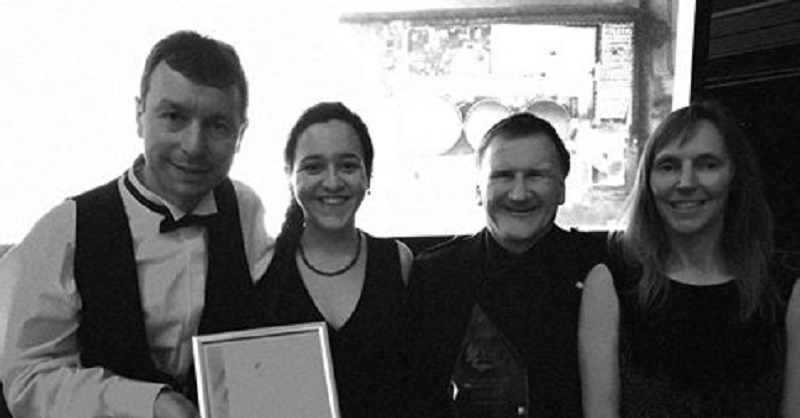
Xanthella Ltd are thrilled to announce their success as overall winners in the Rural Enterprise and Innovation category at the Scottish Rural Awards 2018. The Scottish Rural Awards are the ultimate benchmark of excellence in Scotland’s countryside – a celebration of the enterprise, innovation, dedication and community spirit of those who live in rural Scotland.
Along with over 400 guests and some of Scotland’s most outstanding rural businesses, representatives from Xanthella’s team attended the evening award ceremony and gala dinner on 22nd March at Dynamic Earth in Edinburgh.
Within the ASLEE project Xanthella have developed large scale photobioreactors (Pandora PBR™) that are able to respond to intermittent energy supply and the team is now working on the Energy for the Bioeconomy (ENBIO) project alongside ALIenergy and Woodland Renewables. ENBIO will further exploit the PBR technology and build an industrial scale array of PBRs on the Ardnamurchan Estate. The judges were impressed with the innovative nature of the ASLEE and ENBIO projects and how they integrate algal bioproduction with locally generated renewable electricity, helping to balance the grid, creating a new bioindustry and boosting the rural circular economy by utilising stranded resources.

Innovation is their motivation at the Scottish Rural Awards
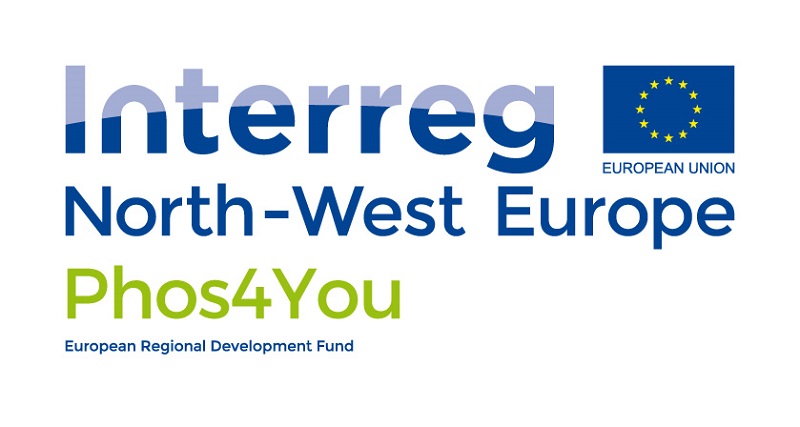
Phosphorous (P) is an essential, indispensable, but non-renewable, nutrient used as a fertilizer for the growth of all crops. However, excessive use and potential discharge of P into the environment can lead to eutrophication, which results in algae blooms and dead zones. Therefore, recovering P from waste streams has become a major objective both to provide new sources of fertilisers and to prevent pollution.
The Phos4You project, funded by Interreg North-West Europe programme, specifically targets phosphorus recovery from municipal waste water treatment plants (WWTPs). Six different demonstrators of innovative P-recovery technologies will be constructed and operated in real life conditions for municipal sewage water.
Scotland is considered as 97% rural with around 1600 waste water treatment plants serving communities with less than 500 persons. In small waste water treatment plants such as these, nutrients are usually not recovered, potentially leading to eutrophication problems when the waste water is discharged. Recovering P from these decentralized small waste water treatment plants requires systems offering robustness, low maintenance and adapted to a high variability of P in wastewater.
Glasgow Caledonian University (GCU), as part of the Interreg North West Europe Phos4You project, is evaluating a microalgae phosphorous recovery technology as part of its focus on technologies adapted to remote, rural and island locations in Scotland. The extremophile microalgae Chlamydomonas acidophila, which grows at a pH of 2-3, is being tested in this context for its high phosphorus and nitrogen uptake rates (up to 90%) whilst operating at low light intensities.
The novel, internally illuminated Pandora PBR™ photobioreactor (PBR) designed, developed and built by ASLEE partner Xanthella, is being considered for scale-up testing of this nature-based technology.
GCU and Xanthella are in discussions about how algal production can be enhanced and how the species used in wastewater treatment can grow and recover nutrients in their manufactured systems.
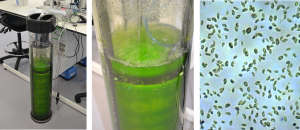
Posted on November 23, 2017
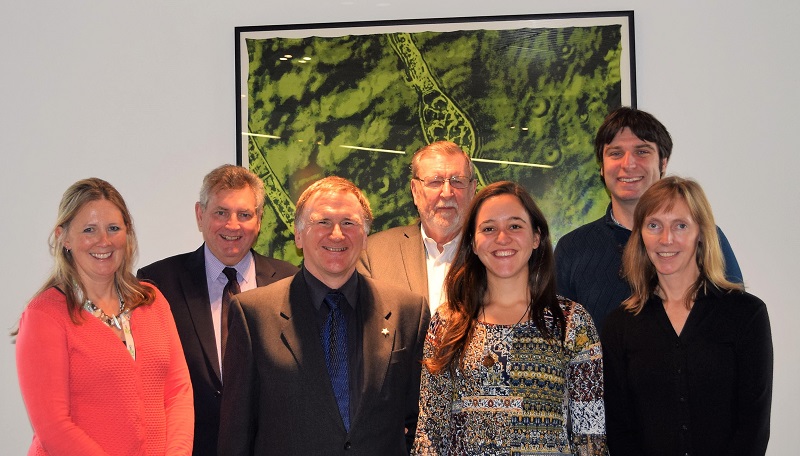
Xanthella Ltd and ALIenergy are very pleased to announce the start of a new pioneering project continuing the innovative work which took place in the ASLEE project. Energy and the Bioeconomy (ENBIO) project, funded by Zero Waste Scotland (www.zerowastescotland.org.uk), is highly innovative and (to our knowledge) currently unique in the world. It uses algal bioproduction to enable new industry in rural areas and at the same time increasing the strength of the rural circular economy by enabling better use of stranded timber and distillery coproducts.
The project builds on the existing LECF-funded ASLEE project which has developed a novel, class-leading internally lit photobioreactor (Pandora) whose lighting can be externally controlled to meet grid demands, allowing the PBRs to be used as a rapidly-acting balancer of local renewable energy production. The ASLEE project also demonstrated that the algae are very tolerant to light intermittency, making their production an ideal transactive load.
The ENBIO project will see sixteen 1000 litre Pandora PBRs deployed at the Ardnamurchan Estate using surplus energy from the CHP plant to produce high value algae and automatically matching local electricity demand with production. The Ardnamurchan PBR array will give Scotland a lead in industrial scale algal biotechnology in the UK.
In addition, the ENBIO project will contribute to the low carbon economy through helping reduce transport costs, displace algal imports that are currently air shipped to Scotland, achieve better use of distillery co-products and directly incorporate CO2 into the algae.
Within the project ALIenergy is working with Xanthella (www.xanthella.co.uk) and Ardnamurchan Estate (www.ardnamurchanestate.co.uk).
Representatives from the partner organisations and Zero Waste Scotland gathered for a kick off meeting at Xanthella’s offices at Malin House, Dunstaffnage, near Oban, on Thursday 26th October.








